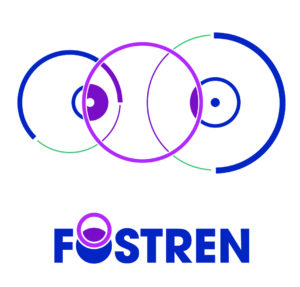Written by Yvonne Quenum
What is your country’s stand on coercion reduction?
In France, consent is one of the essential conditions for therapeutic care. Psychiatry is an exception: to prevent harm to the patient or to other people, legal measures can be used to force individuals with mental health conditions to receive treatment against their will. Coercive measure includes involuntary hospitalisation, seclusion and mechanical restraint. Since 2016, their reduction is one of the mental health policy objectives. In France, the legislation on enforced psychiatric care was profoundly transformed by the law of 5 July 2011. Two major measures have been introduced: the systematic control by the judge of the need for forced hospitalisation; and the possibility of ambulatory care without consent within the framework of compulsory care program. In addition, the law introduces a new mode of admission for “care in imminent danger”, to be able to hospitalise more easily under constraint those who have no relative who can sign a request for forced hospitalisation.
Before 2016 there was no legal framework for seclusion and physical restraint. The law introduced in 2016 the fact that these practices should be used as a last resort.
Since 2017 seclusion and physical restraint are no more define as a care but as measure to prevent a serious risk to the integrity of the person or of others, which can only be used after less restrictive alternative measures have failed. And law introduced at the same time that all psychiatric hospital have to keep a register on physical restraint and seclusion data.
The objective of reducing the use of forced care, seclusion and mechanical restraint was listed in the 2018 country’s mental health roadmap.
In 2022 the legislation was significantly modified concerning restrictive measures. From now on, the judge must rule on seclusion measures lasting more than 72 hours and on mechanical restraint measures lasting more than 48 hours. This evolution has made the procedures related to these restrictions much more cumbersome and time-consuming. A significant number of psychiatric professionals are expressing anger at the implementation of these new procedures, arguing that they will further weaken a speciality already in serious difficulty.
This system has a dissuasive dimension. The aim is to encourage psychiatrists and healthcare teams to seek less restrictive alternatives in order to significantly reduce the number and duration of seclusion and mechanical restraint measures. Indeed, several indicators show the need for an urgent change in practices, also claimed by user’s organisations.
The CGLPL is an independent administrative authority responsible for inspecting places of deprivation of liberty (prisons and psychiatric institutions)
In their 2016 report, they revealed that the use of seclusion and restraint is so widespread that it has seemingly become indispensable to some professionals, with varying usage across hospitals.The authority notes that the way in which they are used in certain wards can be humiliating, undignified and sometimes dangerous. The inspector also deplores the absence of public reflection on these practices.
Current data show a significant increase in the use of compulsory care between 2012 and 2021(both compulsory admission and forced ambulatory care have increased). The use of seclusion has also increased in the same period.
In France, in 2021, approximately 30,000 people were secluded (62/100,000 adult population). The use of mechanical restraints concerned 10,000 people (18/100,000 adult population). The researchers point out that the data are likely to be underestimated. They also note a high variability between institutions; some having almost non use of seclusion, while others are using seclusion for more than 30% of hospitalised inpatient
Actually in France there is no data on the use of other restrictive practice in psychiatry: Forced treatment or examination, physical restraint (without the use of mechanical items), limitation of the freedom of movement or limitation of contacts (e.g. forbidding phone calls or visitors) are not registered.
But anyway, existing data is only used by a very few researchers. The national database includes information for each hospital stay (with information on age, sex, diagnosis, legal mode of stay, seclusion, etc.). The public does not have access to data for a particular hospital. Non researcher can only have access to aggregated data from several hospitals in a geographical area, but this data is raw, because collected automatically, there is no correction in the event of inconsistency (double recording, or other recording problem). This type of data is not very useful for the public, and there is no real political will to distribute them.
Currently, the objective of reducing coercive measures in France remains to be achieved. But recent modifications in legislation may be able to change practices.
Professional training, and the implementation of effective but very little known models in France such as safewards or 6 core strategies could help professional to face this challenge.
What kind of research is happening in your country on this topic?
In France, this theme is very little addressed in research. Nurses have very few opportunities to engage in university studies, this section having only opened last year. Due to Fostren, I noticed that in many countries, nurses have an important place in research on coercion in psychiatry. Nevertheless, things will probably change due to the recent universitarisation of nursing sciences, which could allow nurses to engage in a phD. In addition, since a few years a national research program allocate significant funds to studies carried out by nurses, it is this fund that allowed me to conduct the Planco-Iso study which assesses the impact of joint crisis plan on the use of seclusion. Nursing research in psychiatry is becoming more dynamic and structured in France as demonstrated by the creation of the ADRpsy network. Currently, it is mainly sociologists who do research on coercion in psychiatry in France, their work concerns the rights, autonomy and inclusion of people living with mental disorders. There is still little work on the experience and impact of the use of restrictive measures, or even on the impact of alternative measures or the implementation of new interventions. There are still few works with a quantitative methodology. But there are very interesting initiatives on this topic, as Jean Lefevre-Utile, phD student in nursing ethics, who works on restraint alternative in child psychiatric wards, or the work of the CCOMS in Lille. There is a French RCT on psychiatric advance directive which has been recently published and showed a very significantly effectiveness of this intervention on reducing involuntary admission. I’m also part of the Plaid-Care research, which studies the functioning of a psychiatric hospital with little or no use of coercive measures. It is held by a multidisciplinary team (socio-anthropology, nursing sciences, geography), the results of this study are eagerly awaited because they could support establishments wishing to change their practices.
Why are you in the network? What would you like to achieve with it?
I joined Fostren to share knowledge and to learn from other country experiences. I would like to make the French situation known in order to include international comparisons. I also think that a European policy to reduce the use of coercive measures and to work for the rights of psychiatric users could have an important impact to implement effective models at a national level. Moreover, in France this theme is still very little explored in research. As a researcher, the emulation created by this network is very stimulating for my work.
Is there anything else that you want to share with us?
I consider that beyond the reduction of seclusion and mechanical restraint, there is a need to reflect upon coercive practices in psychiatry in their entirety, and more generally on the experience and the place of psychiatry users. Stigmatisation, institutionalisation, and inequalities of rights in society are barriers to the objectives set by the Ministry. There are many ways to progress in this area, including the promotion of recovery-oriented care, the presence of peer workers at all levels, whether in the training of professionals or with the people concerned who need care.
Aknowlegments: Magali Coldefy health Geographist, IRDES, France
COLDEFY M., GANDRE C., RALLO S. / collab. Les soins sans consentement et les pratiques privatives de liberté en psychiatrie : un objectif de réduction qui reste à atteindre. Quest Econ SANTE IRDES. juin 2022;(269):8p.
https://www.cglpl.fr/2016/isolement-et-contention-dans-les-etablissements-de-sante-mentale/
HAS (2017). Isolement et contention en psychiatrie générale. Recommandations pour la pratique clinique. Haute Autorité de santé.
Morisset, Jérôme. “Isolement et contention en psychiatrie, facteurs d’influence et alternatives.” Recherche en soins infirmiers 132.1 (2018): 78-90.
Tinland, A., Loubière, S., Mougeot, F., Jouet, E., Pontier, M., Baumstarck, K., Loundou, A.,
Franck, N., Lançon, C., Auquier, P., & DAiP Group. (2022). Effect of Psychiatric Advance Directives
Facilitated by Peer Workers on Compulsory Admission among People with Mental Illness: A Randomized Clinical Trial. JAMA Psychiatry.

